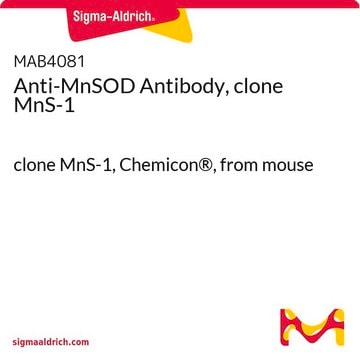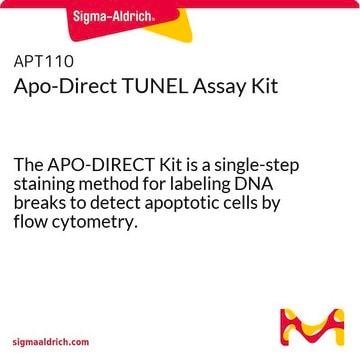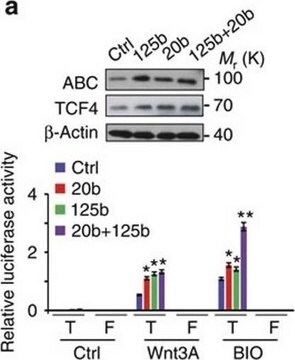06-984
Anti-Mn-SOD Antibody
Upstate®, from rabbit
Synonym(s):
Mn superoxide dismutase, indophenoloxidase B, manganese superoxide dismutase, manganese-containing superoxide dismutase, mangano-superoxide dismutase, superoxide dismutase 2, mitochondrial
About This Item
Recommended Products
biological source
rabbit
Quality Level
antibody form
purified immunoglobulin
antibody product type
primary antibodies
clone
polyclonal
species reactivity
mouse, bovine, human, rat
should not react with
canine
packaging
antibody small pack of 25 μg
manufacturer/tradename
Upstate®
technique(s)
immunohistochemistry (formalin-fixed, paraffin-embedded sections): suitable
western blot: suitable
isotype
IgG
NCBI accession no.
UniProt accession no.
shipped in
ambient
target post-translational modification
unmodified
Gene Information
human ... SOD2(6648)
General description
Specificity
Immunogen
Application
10 μg/mL of a previous lot detected MnSOD in paraffin embedded rat brain tissue sections.
Quality
Western Blot Analysis:
0.5-2 μg/mL of this antibody detected MnSOD in RIPA lysates of rat L6 RIPA cells. 1-4 μg/mL of a previous lot detected MnSOD in RIPA lysates of human MCF-7, A431 and rat L6 RIPA cells.
Target description
Physical form
Analysis Note
L6 cell lysate, rat brain tissue extract.
Other Notes
Legal Information
Not finding the right product?
Try our Product Selector Tool.
recommended
Certificates of Analysis (COA)
Search for Certificates of Analysis (COA) by entering the products Lot/Batch Number. Lot and Batch Numbers can be found on a product’s label following the words ‘Lot’ or ‘Batch’.
Already Own This Product?
Find documentation for the products that you have recently purchased in the Document Library.
Our team of scientists has experience in all areas of research including Life Science, Material Science, Chemical Synthesis, Chromatography, Analytical and many others.
Contact Technical Service







